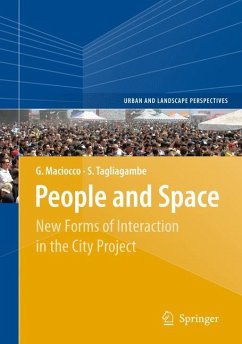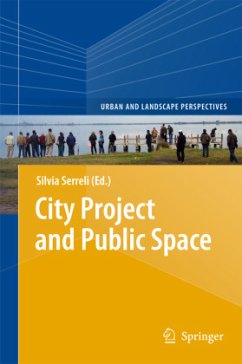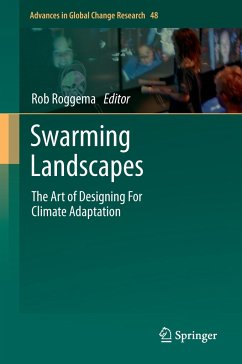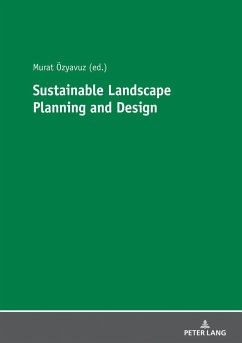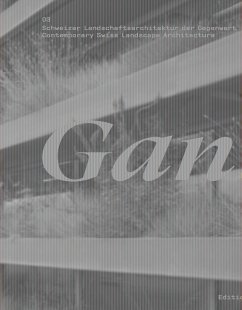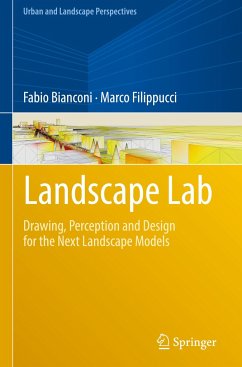
People and Space
New Forms of Interaction in the City Project
Versandkostenfrei!
Versandfertig in 6-10 Tagen
76,99 €
inkl. MwSt.
Weitere Ausgaben:

PAYBACK Punkte
38 °P sammeln!
This book explores new forms and modalities of relations between people and space that increasingly affect the life of the city. The investigation takes as its starting point the idea that in contemporary societies the loss of our relationship with place is a symptom of a breakdown in the relationship between ethics and aesthetics. This in turn has caused a crisis not only in taste, but also in our sense of beauty, our aesthetic instinct, and our moral values. It has also led to the loss of our engagement with the landscape, which is essential for cities to function.The authors argue that new,...
This book explores new forms and modalities of relations between people and space that increasingly affect the life of the city. The investigation takes as its starting point the idea that in contemporary societies the loss of our relationship with place is a symptom of a breakdown in the relationship between ethics and aesthetics. This in turn has caused a crisis not only in taste, but also in our sense of beauty, our aesthetic instinct, and our moral values. It has also led to the loss of our engagement with the landscape, which is essential for cities to function.
The authors argue that new, fertile forms of interaction between people and space are now happening in what they call the 'intermediate space', at the border of "urban normality" and those parts of a city where citizens experiment with unconventional social practices. This new interaction engenders a collective conscience, giving a new and productive vigor to the actions of individuals and also their relations with their environment.
These new relations emerge only after we abandon what is called the "therapeutic illusion of space", which still exists today, and which binds in a deterministic manner the quality of civitas, the associative life of people in the city, to the quality of urban space. Projects for the city should, instead, have as their keystone the notion of social action as a return to a critical perspective, to a courageous acceptance of social responsibility, at the same time as seeking the generative structures of urban life in which civitas and urbs again acknowledge each other.
The authors argue that new, fertile forms of interaction between people and space are now happening in what they call the 'intermediate space', at the border of "urban normality" and those parts of a city where citizens experiment with unconventional social practices. This new interaction engenders a collective conscience, giving a new and productive vigor to the actions of individuals and also their relations with their environment.
These new relations emerge only after we abandon what is called the "therapeutic illusion of space", which still exists today, and which binds in a deterministic manner the quality of civitas, the associative life of people in the city, to the quality of urban space. Projects for the city should, instead, have as their keystone the notion of social action as a return to a critical perspective, to a courageous acceptance of social responsibility, at the same time as seeking the generative structures of urban life in which civitas and urbs again acknowledge each other.





